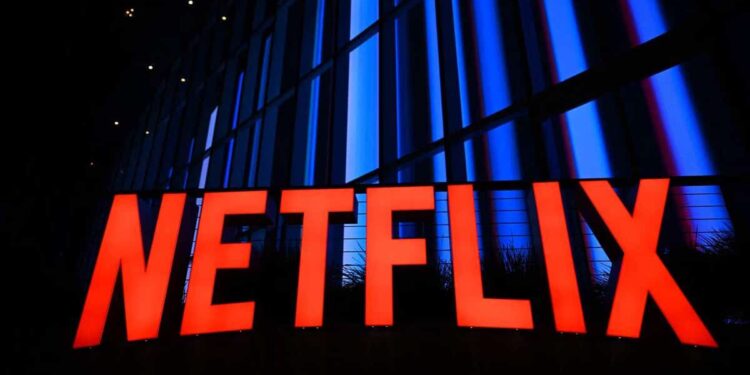As the political climate in the United States becomes more polarized than ever, large companies sometimes find themselves caught in the crossfire, accused of supporting a candidate and becoming the target of calls for boycotts during a presidential campaign.
This is the recent mishap experienced by Netflix and Google, victims of disinformation campaigns accusing them of financing the campaign of Democratic candidate Kamala Harris, a few months before the November 5 election.
In the wake of this, calls for a boycott have multiplied, particularly on the social network X (formerly Twitter) of billionaire Elon Musk, who himself has taken up the cause of Republican candidate Donald Trump and who does not hesitate to try to influence voters via his platform.
But the calls, particularly against Netflix, have also come from other social networks, such as TikTok and Instagram, each time with the same accusation: that the company financed M’s campaign.me Harris to the tune of seven million dollars.
In fact, it was Netflix chairman and co-founder Reed Hasting who made the donation “in a personal capacity,” as the company stressed in a statement, stating that his personal commitment “had no connection to Netflix.”
Despite this, calls to “delete Netflix” have taken over social media, with screenshots of subscription cancellations even becoming a trend.
According to disinformation research firm Cyabra, nearly a quarter of calls for boycotts on X come from fake profiles that have already been used to support Mr. Trump.
“Disinformation campaigns against companies in today’s polarized climate have an impact that goes far beyond simple image issues,” Cyabra CEO Dan Brahmy told AFP.
“The Netflix case shows how quickly these campaigns spread and potentially reach hundreds of millions of people,” but also that “disinformation can manipulate both public opinion and consumer behavior,” he insists.
“Delicate balance”
For him, “companies must be vigilant.”
Like Netflix, Google found itself in the eye of the storm, accused of having censored certain content related to the elections, but also of having manipulated the algorithm of its search engine to push forward those favorable to Mme Harris.
Several hundred fake X accounts, again with a pro-Trump history, relayed a call to boycott the digital giant.
Elon Musk, a frequent critic of Google, has played “a significant role in amplifying negative content” against the company, according to a report by Cyabra.
Asked by AFP, Google declined to comment.
Boycotting companies for political reasons is not new: according to a survey conducted by Sitejabber in early August, 30% of respondents had done so in the last twelve months and 41% wanted companies not to express political ideas.
They have to “strike a delicate balance in this election year,” Sitejabber CEO Michael Lai told AFP. “While remaining apolitical may seem less risky, it’s important for companies to understand that even neutrality can be seen as taking a stand.”
“Chaos and distrust”
Consumers, however, have no clear opinion on whether or not a company should engage on political issues, according to a survey by Certus Insight.
But the risk of a negative impact on their brand is what has pushed many companies to no longer communicate on X after Mr. Musk bought the network in late 2022 and virtually abandoned any content moderation policy.
In early August, X filed a complaint against several companies, accusing them of boycotting the social network and thus causing him to lose billions of dollars in revenue.
“Misinformation fuels chaos and distrust. Brands generally benefit from a well-informed society,” observes Claire Atkin, CEO of the disinformation observatory Check My Ads.
“On the internet, advertisers have allowed digital companies to distance their ads from the news and give them to bad actors,” she told AFP. “We are unfortunately seeing the consequences of that.”



